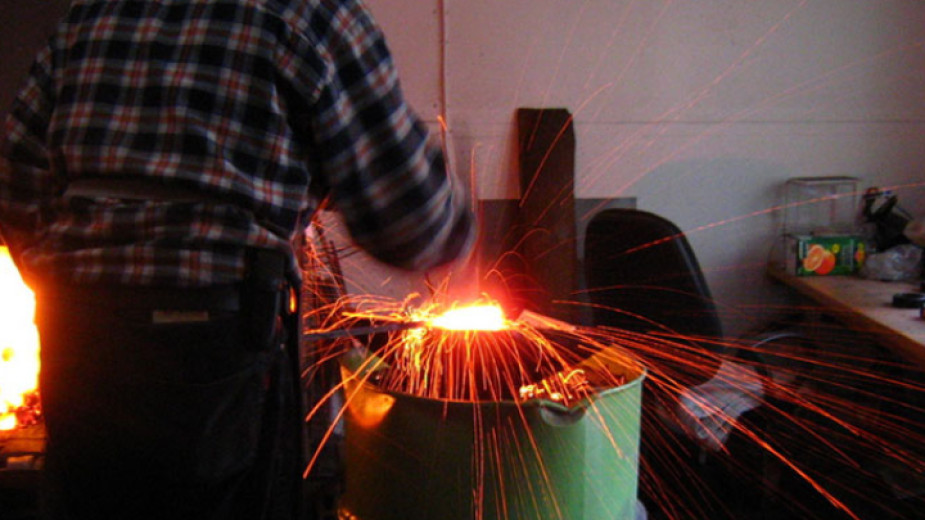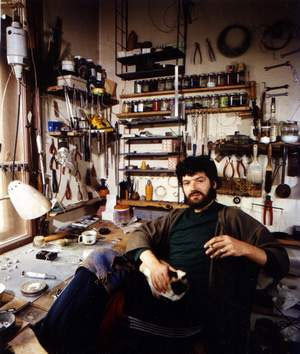 7
7
“Each job requires its master,” the Bulgarian people say. This wisdom has passed the test of time and keeps being valid in the modern world. Being recognized as a master in your professional field is a matter of prestige and honor. Usually, people use the word “master” when they refer to professional craftsmen, builders, chefs, artisans. Just a century ago, in order to get into the circle of masters, one had to go on a long and difficult road. Future artisans went to work in a master's shop as apprentices. There, they had to spend the required 7 years in order to advance to a higher step in the hierarchy. After that many more years had to pass before receiving the approval and recognition of older master craftsmen and becoming a true craft master. The fast pace of our modern lives has caused this rule to disappear. If one achieved success in a given field they could even look for a new field to show their talent. A typical example of a person who has not stopped progressing in his profession for nearly 40 years now is craftsman Mihail Kochev. His life story is an example of how a man of strong character and talent can learn a new craft, "armed" with knowledge from the Internet.
 The road to becoming an artisan started in Mihail Kochev’s youth, when he was studying at the Technical School of Woodworking and Interior Architecture in Sofia. He studied in a "woodcarving class”. Later, curiosity led him to creating exquisite metal jewelry, decorated with gemstones. After jewelry, Kochev started producing souvenir knives, using sophisticated and very old technology, almost unknown in Bulgaria. Here's what he told Radio Bulgaria about his passion for making Damascus-steel knives:
The road to becoming an artisan started in Mihail Kochev’s youth, when he was studying at the Technical School of Woodworking and Interior Architecture in Sofia. He studied in a "woodcarving class”. Later, curiosity led him to creating exquisite metal jewelry, decorated with gemstones. After jewelry, Kochev started producing souvenir knives, using sophisticated and very old technology, almost unknown in Bulgaria. Here's what he told Radio Bulgaria about his passion for making Damascus-steel knives:
"I feel a lucky man because I am one of the people whose jobs are their hobby and bring them pleasure. I think the knives I make are art objects without practical application. I am not making weapons or hunting knives. The ornaments I put on them are the same as those on jewelry. I also use gemstones like turquoise and pearls. Ideas come from my experience working with jewelry and that is part of the creative path of a master craftsman. Damascus steel knives are made by taking two different types of steel that are folded together until you have a certain number of layers - 100 or 300.”
To reach the level of mastery in his craft, Mihail Kochev has walked a long way. He remembers that in the 1980s when he began to study jewelry making, he wanted to be taught by a famous master. However, he was told that he would be ready to practice in two years. Kochev did not accept this and began to forge his own silver jewelry at home. They were approved by a special commission and he once again proved to himself that he could walk and progress on rough paths.
"I have trained dozens of people in forging and jewelry work, just because I didn't have anyone to teach me. In Bulgaria, the work of artisans is highly appreciated, but people cannot afford the price foreigners would pay. I know what people here can afford, so I sell at affordable prices. I have many clients in the USA. The world has become smaller and I sell my works in Spain, Australia, Asia, various islands, etc. I make no compromises in my work and I do not agree to work on request."
English: Alexander Markov
Photos: mk-jewel.comThe Bulgarian National Radio hosted the annual Public Broadcasters International (PBI) Conference for the first time. Heads and representatives of public radio and television stations from 24 countries participated, including UK, France, Spain, the USA,..
Long-distance sailing captain Svetlozar Tenev has set off from the port city of Varna on Bulgaria's northern Black Sea coast on a circumnavigation of the world . His route will begin in Las Palmas (Canary Islands , Spain), where the man will..
A meeting titled “Mission Water” is taking place today at Burgas State University “Prof. Dr Assen Zlatarov”. The event gathers researchers involved in the European Union’s Mission “Restore Our Ocean and Waters” under the European Commission,..
How to preserve and maintain public trust in media - this is the central topic for participants in the Public Broadcasters..
Long-distance sailing captain Svetlozar Tenev has set off from the port city of Varna on Bulgaria's northern Black Sea coast on a circumnavigation of the..
A meeting titled “Mission Water” is taking place today at Burgas State University “Prof. Dr Assen Zlatarov”. The event gathers researchers involved..

+359 2 9336 661
